About AspenPointe Health Services Fountain
If you or a loved one is struggling with addiction, AspenPointe Health Services Fountain can help. We offer a variety of programs and services designed to meet the unique needs of each individual. Whether you’re looking for help with dual diagnosis, young adult rehab, adult rehab, elderly rehab, LGBTQ friendly rehab, or military rehab, we can provide the assistance you need. We also offer a variety of therapy options, including cognitive behavioral therapy, dialectical behavior therapy, experiential therapy, family therapy, group therapy, individual therapy, and trauma therapy. No matter what your situation, we can help you find the path to recovery.
Addiction Treatment Programs
Dual Diagnosis
Dual diagnosis treatment in Colorado addresses both your mental health and your recovery needs. Along with traditional evidence-based substance use treatment, clients may receive mental health counseling, medication, peer support, and other tools to help them manage their mental health.
Young Adult Rehab
Young adult rehab programs in Colorado address the unique needs of this stage of life. Along with traditional evidence-based treatment, clients may receive educational support, employment training, and help securing housing.
Adult Program
An adult program in Colorado can provide every level of care while addressing the unique emotional and mental needs of adults. Along with traditional evidence-based treatment, clients may receive employment support, parenting classes, and help securing housing.
LGBTQ Friendly Rehab
When you attend an LGBTQ+ friendly rehab in Colorado, you’ll work with professionals who understand the unique challenges you face in creating a substance-free life. LGBTQ+ friendly programs may include detox, inpatient treatment, outpatient care, aftercare services, and more. They will be tailored to take into account your unique individual needs.
Military Rehab
Because of the unique issues veterans and military members face, you may find it more comfortable to choose a military rehab in Colorado. Along with traditional evidence-based treatment, clients may receive trauma-focused care, peer support, help with PTSD, and classes in overcoming other specific challenges.
Senior Rehab
Insurance Coverage
Medicaid
If you qualify in Colorado, Medicaid is one of your options when it comes to paying for rehab. This can be helpful for those struggling to pay for treatment. Look for centers that accept Medicaid and offer the levels of care you need, such as detox, inpatient, and outpatient treatment.
Self-pay options
Self-pay allows you to pay the full cost of addiction treatment in Colorado by check, sending electronic payment to the center, or getting a medical loan. Keep in mind that fee structures may vary depending on the level of care.
Financial aid
In Colorado, financial aid programs can be a great option when it comes to paying for rehab, if you qualify. Financial aid directly from the treatment center is one option, or you might be able to find grants or scholarships from community groups or local non-profits.
Medicare
There are many ways to pay for rehab in Colorado. One option is Medicare. Different Medicare plans may vary, so it’s important to get full details. Also, be sure to choose a treatment center that accepts your specific plan.
Levels of Care
- 1
Outpatient Rehab
Outpatient treatment in Colorado is led by professionals who provide several hours of treatment per week. Outpatient treatment includes multiple approaches, including cognitive behavioral therapy (CBT), motivational interviewing (MI), and holistic therapy options.
Therapies
Cognitive Behavior Therapy
If you’re struggling with substance use in Colorado, you may not realize how connected your thoughts and actions are. Cognitive behavioral therapy (CBT) can help increase your awareness. CBT is a common part of evidence-based treatment programs and may be a part of inpatient treatment, outpatient care, or both. CBT can be empowering as you learn to manage your thoughts and emotions rather than being overwhelmed by them.
Dialectical Behavior Therapy
If you’re struggling with substance use in Colorado, you may not realize that you have the power to improve your circumstances. Dialectical behavioral therapy (DBT) can help you learn how to make positive changes. DBT is a common part of evidence-based treatment programs and may be a part of inpatient treatment, outpatient care, or both.
Experiential Therapy
Experiential therapy in Colorado allows you to participate in hands-on activities that can help you work through challenges. Experiential therapy is commonly part of inpatient or intensive outpatient treatment and may be used to help with skill-building, addressing trauma, and managing substance use triggers.
Family Therapy
Family therapy in Colorado is generally led by a professional who facilitates family members sharing their experiences and emotions. Family members learn how to play a positive role in supporting your recovery. Some of the topics covered in family therapy include improving communication, developing healthy coping skills, avoiding codependency and enablement, and learning to support each other in healthy ways that foster recovery from addiction.
Group Therapy
Group therapy in Colorado is generally led by a professional who facilitates client’s sharing of their experiences and emotions. Group therapy is a normal part of evidence-based treatment programs, and may be a part of inpatient treatment, outpatient care, or both. Topics include addiction education, sharing of experiences, and learning new skills.
Individual Therapy
Overcoming substance use is easier if you’re not alone. During individual therapy in Colorado, you’ll have a professional ally who will help you see things in a new way. Individual therapy is a common part of both inpatient and outpatient substance use treatment and may be used to help with skill-building, overcoming trauma, and creating a substance-free lifestyle.
Trauma Therapy
In Colorado, trauma-informed therapy allows you to be honest about what has happened to you in the past and understand how substance use may be a response to that. From there, you can create better coping strategies. Trauma-informed therapy sessions generally last 60 to 90 minutes and may include discussing a specific event, talking about emotional triggers, and learning emotional regulation and cognitive restructuring skills.
Location
Contact AspenPointe Health Services Fountain
Top Drug Rehab Centers in Colorado
-
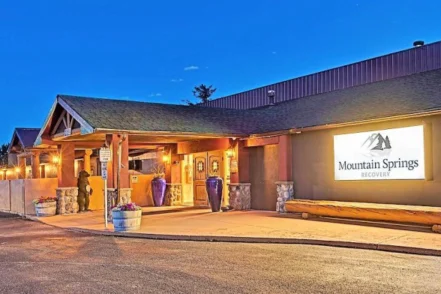 Colorado
ColoradoMountain Springs Recovery
1865 Woodmor Monument, Colorado 80132
-
 Colorado
ColoradoAll Points North Lodge
2205 Cordillera Way Edwards, Colorado 81632
-
 Colorado
ColoradoValley Hope of Parker
22422 E Main Street Parker, Colorado 80138
-
 Colorado
ColoradoThe Rose House Louisville
601 Snowpeak Ln Louisville, Colorado 80027
-
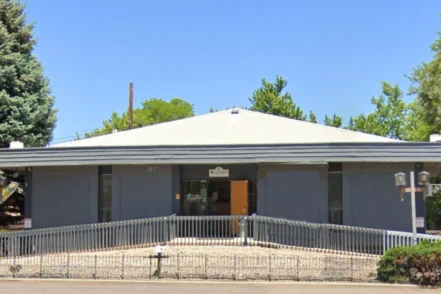 Colorado
ColoradoA New Perspective Counseling Centers Loveland
2017 West Eisenhower Boulevard Loveland, Colorado 80537
-
 Colorado
ColoradoDenver Womens Recovery
3801 East Florida Avenue, Suite 650 Denver, Colorado 80210
-
 Colorado
ColoradoRed Rock Recovery Center
12567 W Cedar Drive, Suite 100 Lakewood, Colorado 80228
-
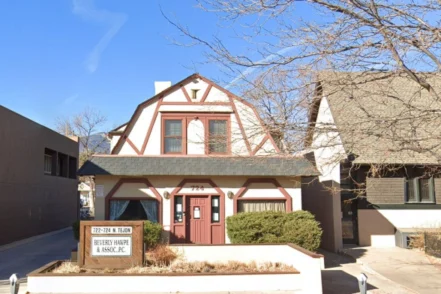 Colorado
ColoradoBeverly Hawpe and Associates
724 North Tejon Street Colorado Springs, Colorado 80903
-
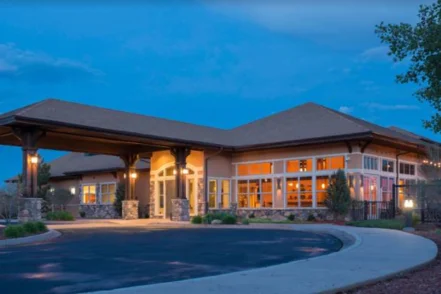 Colorado
ColoradoThe Recovery Village at Palmer Lake
443 S. CO-105 Palmer Lake, Colorado 80133
-
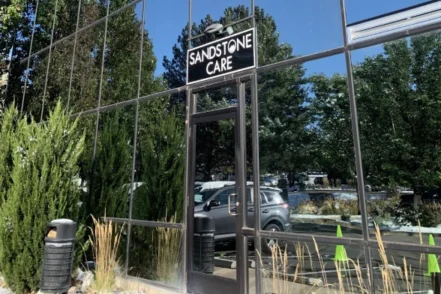 Colorado
ColoradoSandstone Care Denver Center
7555 East Hampden Avenue, Suite 103 Denver, Colorado 80231